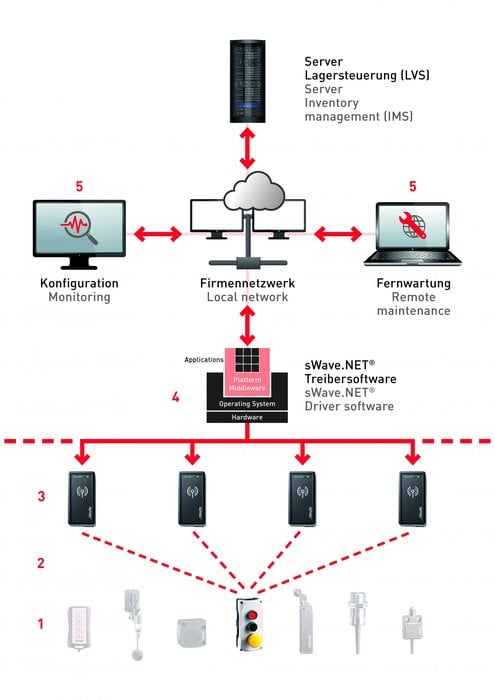www.industry-asia-pacific.com
09
'16
Written on Modified on
steute presents wireless E-Kanban system at the LogiMAT
sWave.NET® wireless network now even more versatile

The basic principle behind this network remains unchanged: wireless switching devices of various types (position switches, foot controls, command devices, magnetic sensors…) are connected via access points to customer IT infrastructures – for example production planning and control (PPC), production data acquisition (PDA) or warehouse management (WMS).
However, new and significantly more compact access points now mean an even more versatile infrastructure. The application server which was previously a requirement has been eliminated: the wireless signals passed on by the access points are now sent directly to an IP address and processed by the user's IT system.
At the LogiMAT, steute will be demonstrating an E-Kanban system which can be used, for example, for replenishing components at assembly workstations, and which communicates via sWave.NET®. Electromechanical wireless position switches send a message as soon as a container is removed from a Kanban shelf. Alternatively, occupancy of the shelves can also be monitored with non-contact, newly developed wireless light sensors. The operator communicates with the system via a newly developed wireless command device featuring a display.
With the sWave-NET® technology, steute has realised an optimised communication protocol for extremely low-energy wireless sensor networks. Its dynamic self-organisation makes it easy to configure and maintain, as well as extremely robust.
Low-energy wireless switches and sensors communicate with the access points via a special routing procedure and without the need for cables. The access points can be integrated in the global IP network via a web portal.
Additional new features of the second sWave.NET® generation include the choice of three different transmission frequencies: 868, 915 and 922 MHz. The wireless network is thus compatible with wireless standards in Europe, North America, Australia and Japan, enabling it to be used all over the world.
steute at the LogiMAT: Hall 5, Booth 5F60

